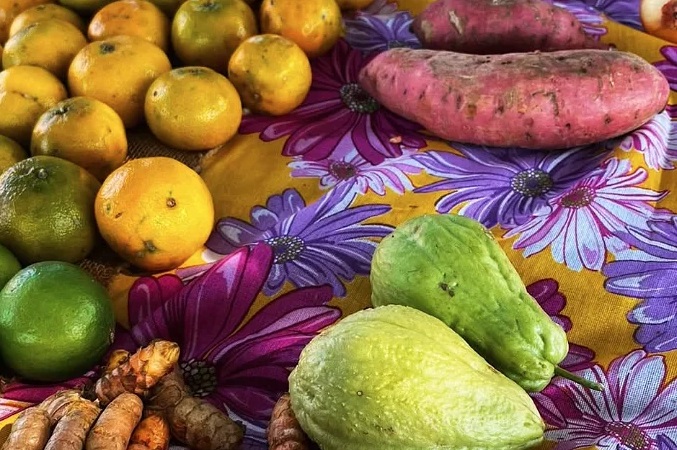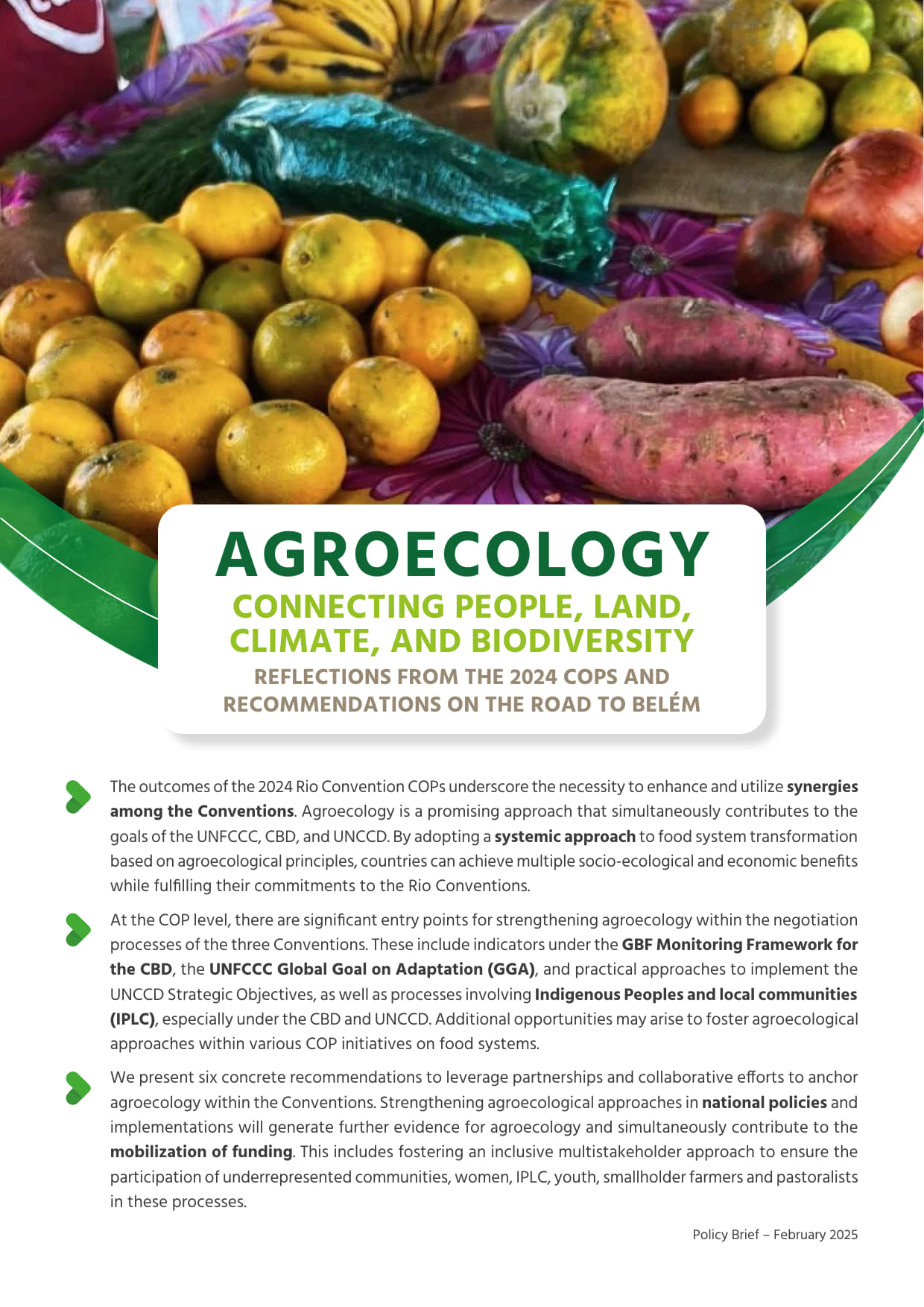A new policy brief by Agroecology Coalition, GIZ, Biovision, CARI and WWF provides recommendations on the Road to Belém.
The outcomes of the 2024 Conferences of the Parties (COPs) to the Rio Conventions underscore the urgent need to enhance implementation synergies between the United Nations Framework Convention on Climate Change (UNFCCC), the Convention on Biological Diversity (CBD), and the United Nations Convention to Combat Desertification (UNCCD).
Agroecology, a transformative approach to sustainable food systems, plays a vital role in contributing to the goals of all three Conventions. By adopting agroecological principles, countries can simultaneously address climate change, biodiversity loss, and land degradation while fulfilling their commitments to the Rio Conventions.
The new policy brief “Agroecology: Connecting People, Land, Climate and Biodiversity” points out that COP negotiations of the three Rio Conventions present significant opportunities to strengthen agroecology within their respective processes. Entry points for embedding agroecological approaches include:
- Indicators under the Global Biodiversity Framework (GBF) Monitoring Framework for the CBD.
- The UNFCCC’s Global Goal on Adaptation (GGA).
- Practical approaches for implementing UNCCD’s Strategic Objectives.
- Enhanced participation of Indigenous Peoples and Local Communities (IPLC), especially within the CBD and UNCCD frameworks.
- Various COP initiatives on food systems.
Additionally, emerging initiatives at the COP level focused on food systems may further facilitate the integration of agroecology into the global conversation on sustainability.
The brief, having analyzed how agroecology has been incorporated in the COP processes so far, presents six concrete recommendations to pave the way for UNFCCC’s COP30 in Belém:
- Pursue strategic opportunities: Engage with existing negotiation work streams and initiatives to foster agroecological approaches. Opportunities may arise within the UNCCD Riyadh Action Agenda, the UNFCCC negotiations on agriculture (SJWA), the Global Goal on Adaptation, the Harmoniya Initiative and the FAST Partnership, and the CBD submission process on enhanced policy coherence across climate and biodiversity.
- Engage with national governments and non-state actors: Support efforts to mainstream transformative approaches for agriculture and food systems, including agroecology, in national planning processes and documents: National Biodiversity Strategy and Action Plans (NBSAPs), Nationally Determined Contributions (NDCs), National Adaptation Plans (NAP), and Land Degradation Neutrality (LDN) targets. This involves fostering coherence between national policies and strengthening the role of national focal points to enhance coordination and cost-efficient national reporting and monitoring. The upcoming NDC update in 2025 offers a concrete link to advance mainstreaming.
- Develop standardized indicators: Develop and promote standardized indicators for monitoring agroecological transitions that align with the frameworks of the CBD, UNFCCC, and UNCCD, while focusing on socio-economic and environmental co-benefits. Additionally, provide guidance on agroecological policy instruments to support countries in ensuring a programmatic perspective.
- Explore financing mechanisms: Analyse emerging financing mechanisms from the CBD and UNFCCC as well as other initiatives to explore how these can be utilized to support agroecology. This includes fostering an enabling environment for funding and investment for agroecological actors on the ground.
- Showcase concrete cases and economic evidence: Identify, document, and promote case studies at sub-national and national level that illustrate the simultaneous benefits of agroecological systems for biodiversity, climate, and land degradation. Provide guidance on linking project outcomes to the goals of the three Conventions and the SDGs.
- Foster an inclusive multistakeholder approach: Ensure the active participation of underrepresented communities, including women, Indigenous Peoples and Local Communities (IPLC), youth, smallholder farmers and pastoralists in the COP processes, building on their knowledge and acknowledging their role in combating biodiversity loss, land degradation and climate change. Leverage decisions made by the CBD and UNCCD to enhance the recognition of IPLC while interlinking those with agroecological principles that integrate their knowledge systems, practices, and participation in governance.
As nations work together to fulfill their commitments to the Rio Conventions, strengthening agroecology in policy and practice represents a crucial step in advancing global sustainability, resilience, and social equity.


